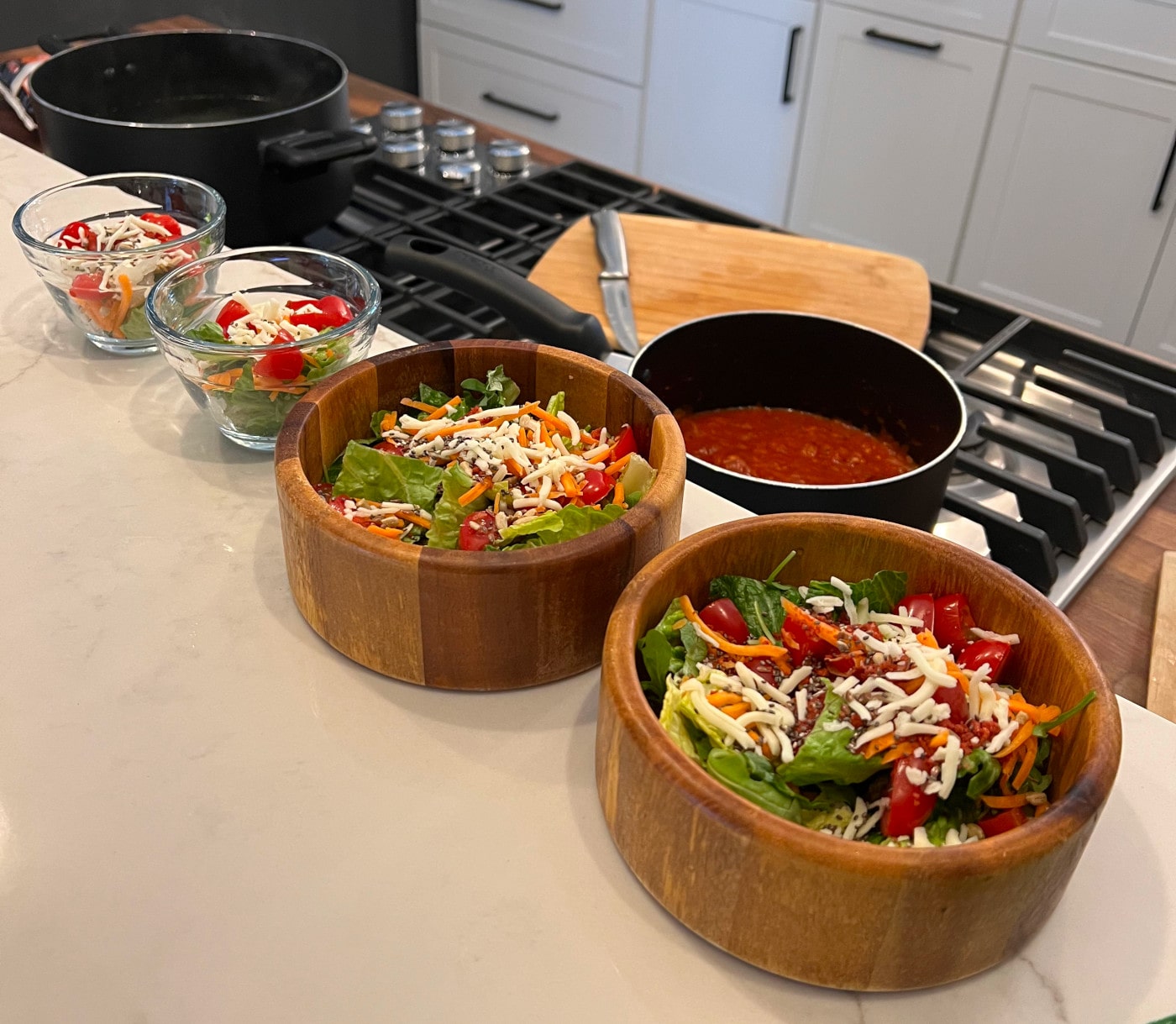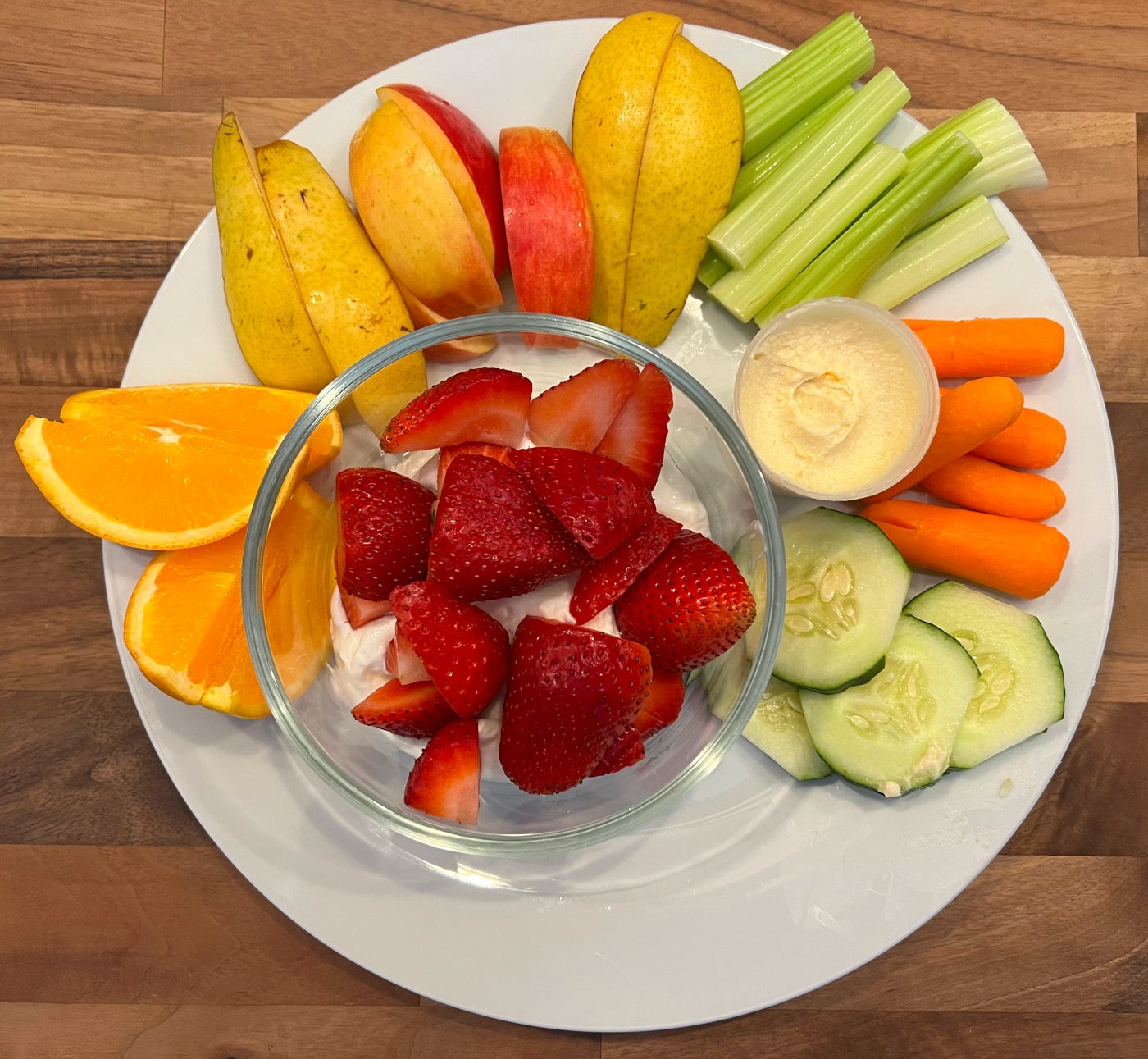Do you ever wonder how often you should eat in a day?
There’s a lot of myths out there about meal frequency and it can be difficult to navigate. But fear not, I’m here to share the number one rule of meal frequency that will guide you towards achieving your nutritional needs.

The best number of meals a day for you is whatever it takes to meet your nutritional needs. It’s that simple. What you eat and how much you eat matter more than how often you eat. Whether you prefer eating three times a day or spreading it out into smaller meals, it’s all about what works best for you to meet your goals.
Adjust Your Calorie Intake
If you want to lose fat or gain weight, the most important thing is to adjust your calorie intake accordingly. Eating smaller meals won’t speed up your weight loss if the calories stay the same. So, it’s not about how often you eat, but about the amount of calories you consume.
Can smaller portions improve your weight-loss plan?
The answer is no. It’s true that meal digestion increases your metabolic rate, but it’s the amount of calories that matters, not how much food you have on your plate. Eating 900 calories in three small meals or one big meal won’t make a significant difference for weight loss.
Will starving yourself prevent you from losing weight?
The truth is, when you eat less, your metabolism has less to digest, so restricting your calories will slow down your metabolic rate whether you skip meals or not. But, a slower metabolic rate is most likely not the reason why your weight loss stalled. Your weight loss will naturally slow down once you have less to lose. So, don’t sabotage your weight loss program by thinking you need to eat more often.
What should I eat to build more muscle?
If your goal is to build muscle, consuming high-quality protein up to 2 hours after your workout can help muscle recovery and gain. For optimal gains, you should consider eating 20-40g of protein about every 4 hours.

Now, when it comes to deciding how many times a day you should eat, consider eating less often, you want to think less about food but still stick to your planned calorie intake, you can’t lose weight even by restricting calories, or you may end up with digestive problems.
On the other hand, you might consider eating more often if you want to gain weight but you don’t want to eat so many calories in a single meal. For someone with a active job that comes with a high calorie demand, or an athlete that require specific nutrient timing eating more often may be a necessary daily requirement.
Remember, there is no magical number of meals a day that will work for everyone. Trust your hunger and find what works best for you to meet your goals. And don’t forget the number one rule: the best number of meals for you depends on what your body needs to meet your goals.
So, my friends, go out there and listen to your body. It knows best. And always remember, you have the power to make the right choices for your health and wellness.










